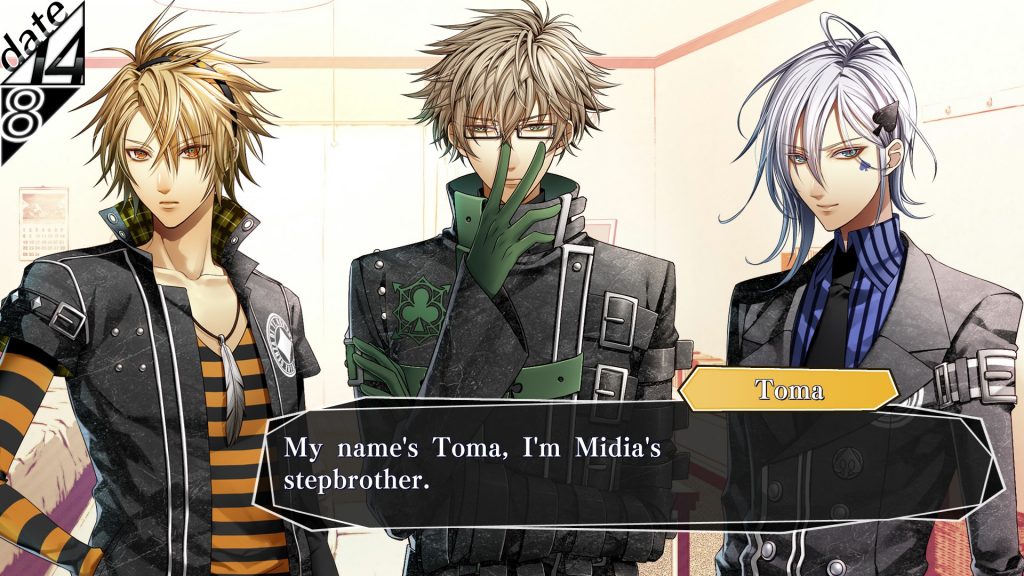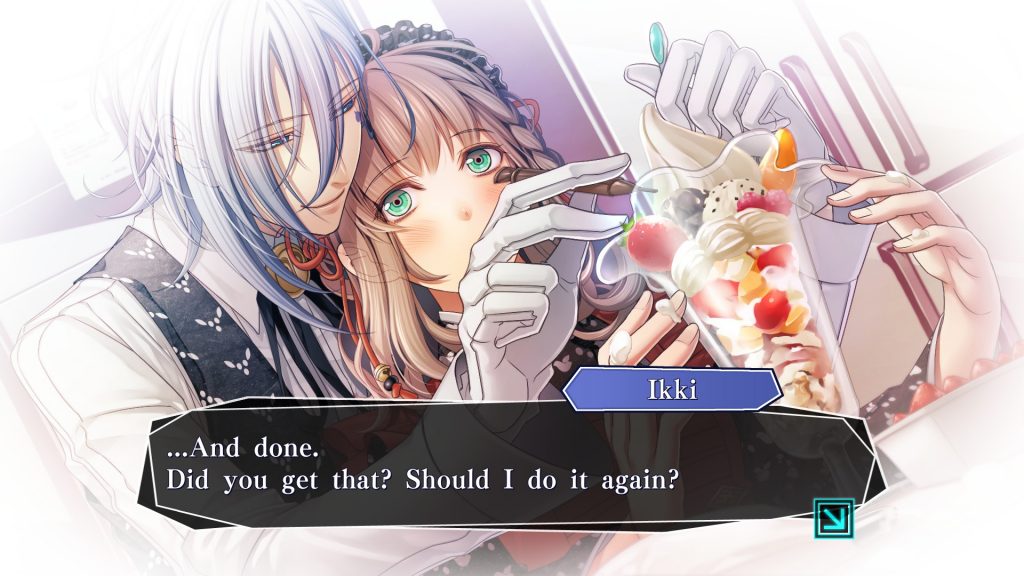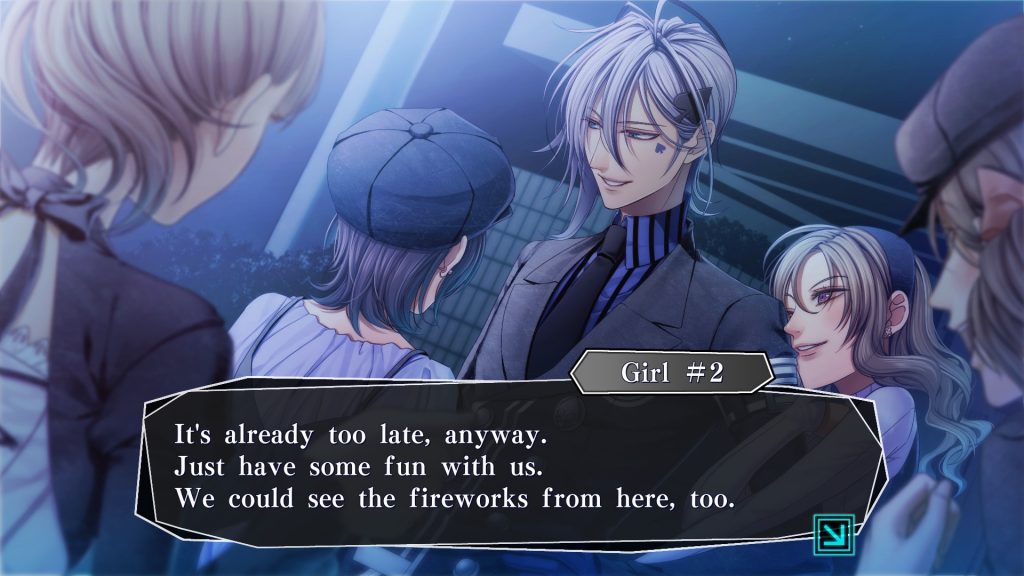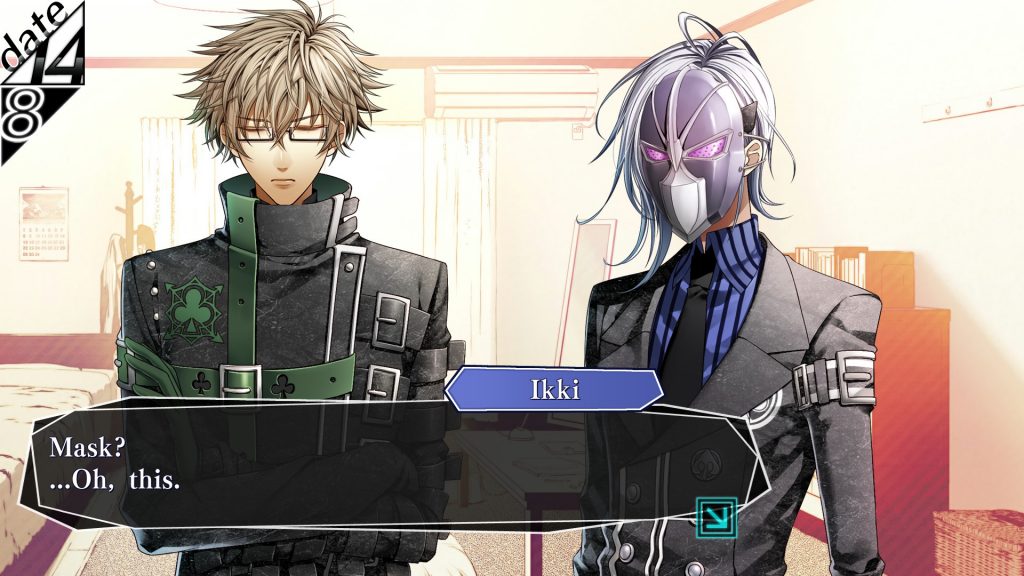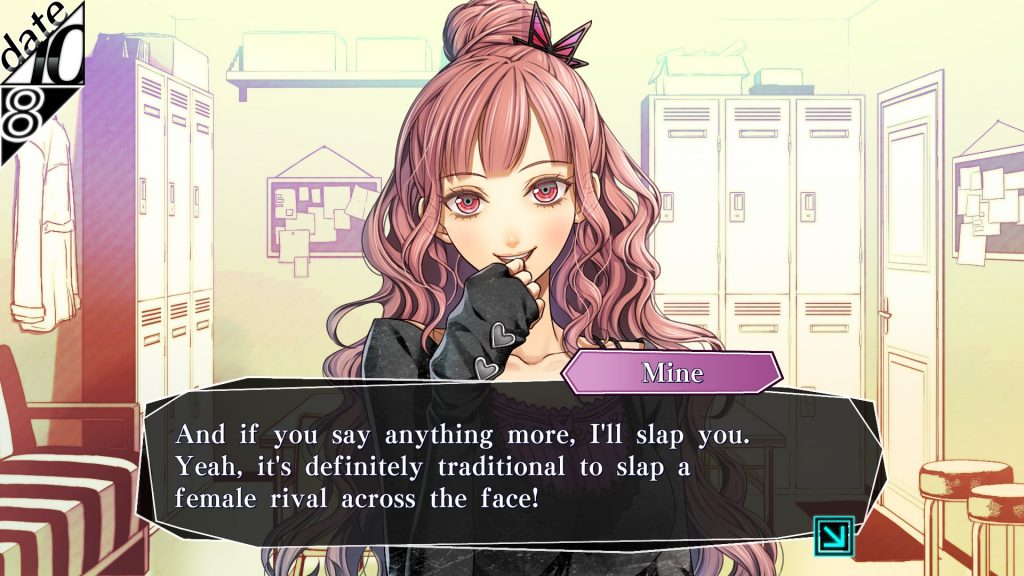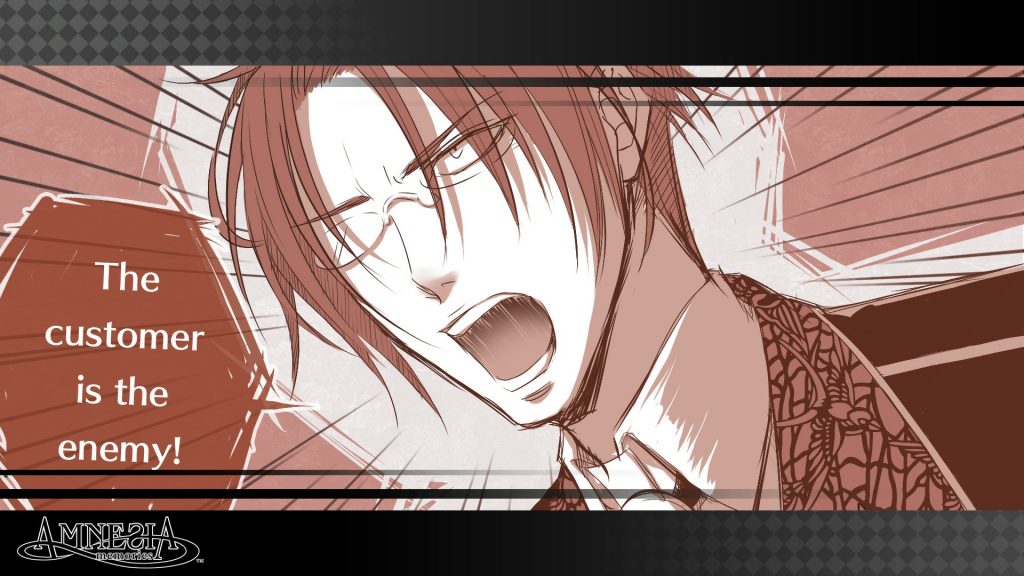Screw men. Seriously. Screw them.
It doesn’t help that it’s a visual novel, albeit with fluid and expressive (Japanese) voice acting. It doesn’t help that it’s a Shojo, filled with all the tropes of overly-complicated love-drama, albeit with an excitable and fun spirit named Orion living in your head. It doesn’t help that out of the four guys you can randomly choose at the beginning of the game to date (with no information about them before the choice is made), I picked the misogynistic playboy asshole who couldn’t help but be constantly obsessed with putting his johnny in every single woman he met on the street BUT ME, albeit he apologized several times for such behavior. However, I think what did it in for me, is that by the time I got to the end of my first playthrough of Amnesia: Memories, the ending I received indicated that the writers hadn’t really intended for there to be any closure for the player, unless they actually tried to make it work with their boyfriend. I got an ending without explanation of events that happened throughout the entire game, no closure on the nature of the relationship with the boy named Ikki, Orion was still stuck in my head, and my memories were still lost in amnesia.
A:M, is unfortunately a game that does not expressly reward role-playing beyond the aimed demographic of the intended audience–being emotionally imbalanced love-sick teenagers with a penitent for a lot of drama that can only be solved by getting your boyfriend to hurt and heal you three times daily. Now, I’m not upset that this is the demographic (and in fact I like being a part of it from time to time), but the “game” part of Amnesia, is essentially a series of binary and obvious choices that will either increase or decrease one of three statistics (Love, Trust, Suspicion) that are in connection with your chosen boyfriend. Thinking that, with such a simple game format, the game would promote a bit of a “choose-your-own-adventure” playstyle of game, any time I ran into a choice, I simply treated the silent protagonist as a template for myself and responded with the answer that I connected with. Therefore, when Ikki became aggressive and tried to force himself on me, I told him to back the f$@! off. When I ran into Ikki’s much more attractive friend (both physically and mentally) I was nice to him, and tried to spend more time with him. When Ikki stood me up for thirty minutes while I was wearing my sodding best damned yukata, and I go out to find him surrounded by a flock of girls, I chose the “I hate you Ikki,” response. I’d like to think I role-played what any rational emotional-feeling human being would do in these situations.
Now once again, I must express. The *problem* here aren’t these situations that I found myself in–I mean, I kind of expected this. My problem is the game’s ending. The last four days of the game (you play until August 30th) were fast-forwarded, up until the final day where Ikki breaks up with you (fair enough, I’d been giving him obvious signals throughout the game) whereupon Orion’s like “Well, I guess you’ll have the rest of your life to find those memories” and the game just kind of ends. My problem is that this whole thing felt flat. The writers/designers obviously intended the player to suck up to their boyfriend and try to max out the three stat bars with them. Anyone playing the game differently is treated with an indifferent weak ending that lacks any closure whatsoever. I’m not looking for a good ending–I’m not even looking for an ending where I’m exposed to all the details of the plot–but it didn’t feel like an ending at all. It simply felt like being told “well… you didn’t play the game right. Uh… try again.”
Now, this was by no means a bad game–er–visual novel. I enjoyed many scenes, and overall the plot and premise was entertaining. It’s just that… well frankly, I hate Ikki. I hate Ikki a lot. And I think I can borrow Lepcis’s and I’s often spoken lament: I hate games that pretend to give you choices when you really have none. Now, certainly I’ve seen games do worse in this department. Your dialogue choices do move the scene of a particular story in the direction of the dialogue that you’ve chosen. Sometimes, several conversations later within a scene, they’ll reference your choice, which is nice. This is why I’m only lowering the tier of this game to 2. That being said, I just wish that I had been given an *actual* bad ending. I wish the game had told me what really happened instead of “uh… okay, don’t worry, you have the rest of your life to get those memories. Oh by the way, The End.” In a game with such a simple path of player choice, I can’t imagine it would have been *that* difficult to tailor an ending based upon the positivity or negativity of the three stat bars. Long Live the Queen for example does this in a powerful way; with dozens of stat bars that all affect the end of the game.
Is it presumptuous to expect more from a genre that traditional is shallow? Is it too much to want silly drama but meaningful choices in tandem? Spirited Away has been my favorite movie ever since I watched it when I was 13. When Miyazaki produced it, he did so with the idea that he wanted to present the female youth of the day with a heroine in a story that could be focused on emotions and feeling but also be a strong story with great meaning in the heroine’s choices. A:M unfortunately just feels like generic Shojo smut except… you have to sit through it a couple of times picking the right choices to get the full story. If I wanted that, I would just read Shojo–I wouldn’t be playing a Visual Novel game. Oh well; perhaps I ask too much. At any rate, the game still comes highly rated as an enjoyable way to get your heart boiling (either from the anger of rejection or the passion of new love) but maybe didn’t quite reach the height at which I initially pegged it at.
